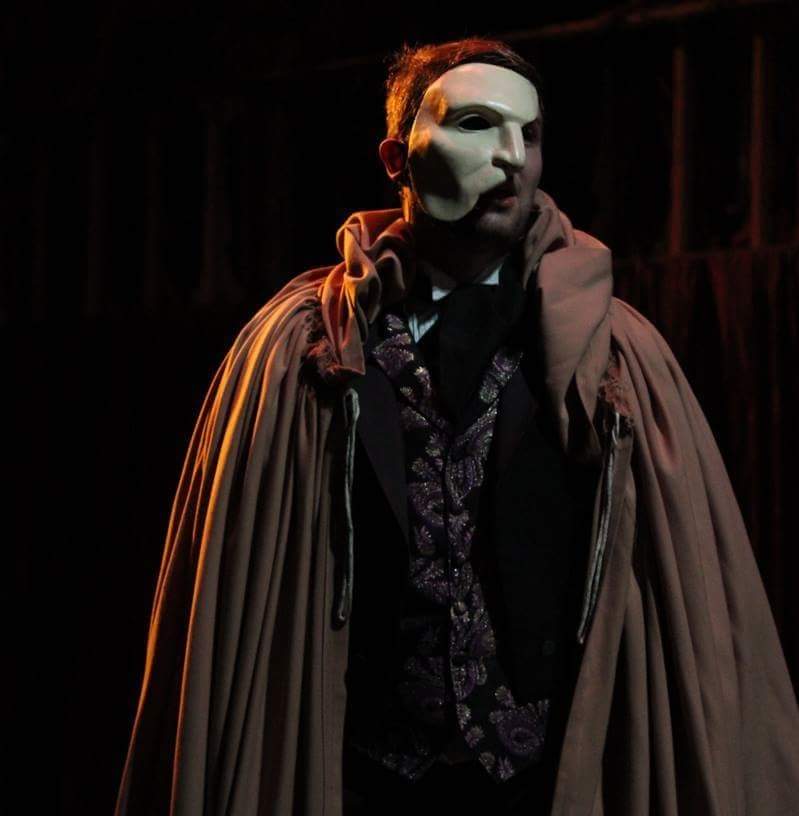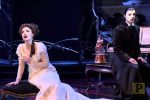“Romeo and Juliet” is arguably the most well-known love story of all time. Penned by the incredible William Shakespeare, the play tells a tale of betrayal, rivalry and forbidden, passionate romance. However, most people’s knowledge of the story stops here at the surface. They don’t bother to delve deeper for a variety of reasons, the most common being that Shakespeare’s syntax is pretty damn challenging to read. Or, maybe we are just repressing horrific freshman English class memories…you know, when you had to read the parts out loud?
Many young people, admittedly myself included, are quick to overlook Shakespeare and categorize his work as outdated and overly dramatic. However, his writing holds timeless truths that warrant a second, if ever-lasting glance. Senior Acting major Ian Garthwaite whole-heartedly believes in second glances and hopes to make a career on Shakespeare’s iconic words. Garthwaite studies acting at Nebraska Wesleyan University in Omaha, and, like most budding young actors, aspires to light up the Broadway stage. However, Garthwaite appreciates a very different sort of theatre than his fellow performers. His passion for Shakespearean performance sets him apart from the swarm of Theatre majors and gives him a refreshing and unique ability.
Shakespeare’s writing can come across as dry, brittle and outright boring, but Garthwaite works tirelessly to breathe new life into the script pages. But, it comes down to more than just hard work and character study; you have to truly believe in what you’re acting, and Garthwaite offers no shortcomings of the craft. “There’s something about his writing that is just so timeless,” he says. “The language that he uses is so beautiful, and speaks to us even today. The issues that Shakespeare focused on…are very similar to issues we go through now.”

Garthwaite believes Shakespeare wrote about what it means to be human. His comedies, dramas and prose reflect the timelessness of the human condition and our uncanny, relentless pursuit of a full life. Some say he wrote “larger than life” characters, but in actuality, he wrote them to act as big and as full as he thought life should be lived. Garthwaite performed as Lord Capulet in “Romeo and Juliet,” the Capulet family’s harsh and overprotective patriarch. His character has many layers, which are peeled back scene by scene until his tyrannical spirit is revealed. He was recently cast as the lead role of Antipholus in Shakespeare’s “The Comedy of Errors” at Wesleyan.
The young thespian discovered his passion for acting while watching the twenty-fifth anniversary theatrical production of “The Phantom of the Opera.” “I had just started singing, I wasn’t really looking at theatre, [but then] I was obsessed. I had to be on the stage,” he says. What drew him into the story was the character of the Phantom and the merciless torment life confronted him with. “There’s a certain part [about] not living up to your own expectations of yourself. It’s something I think we all feel at some point, [something] that we can all relate to. I know I definitely did.”
For Garthwaite, preparing for a role is much more than memorizing lines and knowing your blocking; it’s dedication, drive and determination. “Get your lines down, that’s the first thing,” he says. “Get them intuitive, get them to the point where you don’t think about them anymore because that’s when the real acting begins.” Each character and each line of dialogue they have will include an objective and an obstacle, and it’s the actor’s job to figure out how to overcome and prevail. Garthwaite keeps a journal for the characters he plays and writes down scenes from their perspective, helping him to understand their motivations. But, there’s still more.
“Acting is practicing empathy; it’s getting into somebody else’s mind and feeling what they’re feeling,” he says. “Sometimes it’s similar, and sometimes it’s very different. You can find parts in yourself that are similar to these characters.” The entertainment industry, including film, television, music and theatre, is centered on the art of storytelling. As a reader, you know a good story from a bad story pretty easily. You decide on a few factors: the amount of backstory or context, the depth of descriptive language and, most importantly, how developed (or undeveloped) the characters are.

Similar to authors, actors have to delve into their characters and make sure they know them inside and out, and are ready to give the audience a fully formed personality. Garthwaite loves to dig into characters because he knows there’s so much behind them. “I like to tell love stories,” he says. “Stories about love, the pursuit of love…in comedy or drama.” Reading a script and absorbing someone else’s essence though? It’s easier said than done. Garthwaite has taken on extremely difficult roles with little direction and takes the challenge upon himself. This summer, he’s playing the role of the Beast in Starlight Theatre’s production of “Beauty and the Beast,” both an emotionally and physically challenging role. “I had to figure out and practice how he would walk,” he says. “How deep his voice would me, his facial expressions, but further than that, his backstory and his future. If Belle leaves, he won’t just be a Beast forever—the Prince will be gone. He’ll be an animal.”
Whether it’s dedication or his secret obsession with Patti LuPone, Garthwaite effortlessly sets himself apart from the crowd. He dreams of bringing back the classic and creative writing of Shakespeare for audiences to experience in a live theatre and not a classroom. Garthwaite appreciates the life Shakespeare wrote with, but also the life he wrote about. “He wrote about issues in England that existed in the world that he knew, but those issues still exist in our world today. Religion, persecution, gender identity, homosexuality, etc.” The Nebraska Wesleyan student is bringing a kind of storytelling back to life, stories uncluttered by distasteful writing and cheap theatrics, stories with intelligence, genuine humor and heart.

















Nebraska Wesleyan is so proud Ian and his talents! Thank you for featuring him. One clarification – Nebraska Wesleyan is located in Lincoln, Nebraska – not Omaha. 🙂